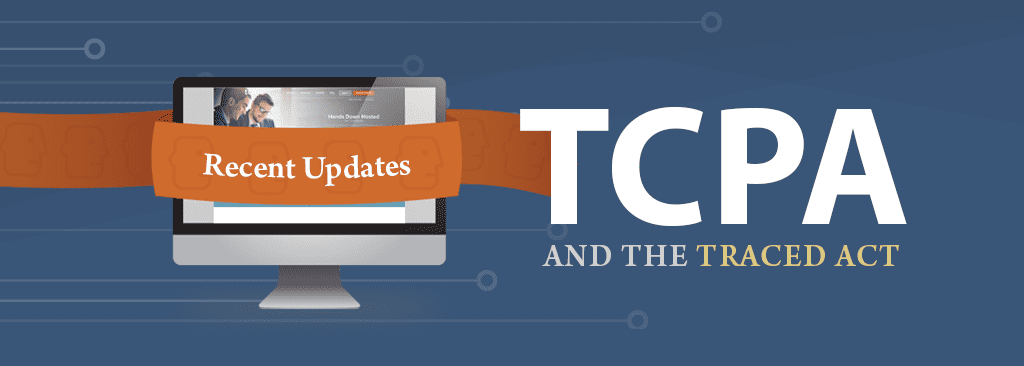Changes to TCPA Compliance Penalties and Call Blocking
With ever-changing technology, comes ever-changing rules and regulations. This has especially been the case since the TRACED Act (Telephone Robocall Abuse Criminal Enforcement and Deterrence) was signed in December 2019.
As a result, call centers are under the microscope now more than ever.
The TRACED Act: Looking Back at the Last Six Months
The TRACED Act regulations are aimed to decrease the number of illegal robocalls. It states that major cell carriers need to install STIR/SHAKEN technology onto their networks.
Doing so will make it easier for carriers to notify consumers when they’re receiving a call from potential scammers.
As a penalty for violation or failure to comply, companies can now be fined up to $10,000 per robocall. Additionally, organization liability for illegal robocalls is now extended from 1 year to 4 years.
The necessity for these new laws can be understood since YouMail shared the shocking statistic that Americans received an estimated 48 billion robocalls in 2018.
However, what about call centers? What about the legitimate calls providing alerts about account balances or flight delays — getting marked incorrectly as “Fraud”?
How It’s Affecting Call Centers & Consumers
With the increasing regulations of call blocking scammers, call centers now face issues with TCPA compliance — challenging their ability to remain operational. This is exactly why it is essential for call center executives and managers to prioritize TCPA compliance.
Not only do call blockers affect call center operations, but consumers are also seeing the effects – good and bad.
From a consumer’s perspective, they are annoyed by the countless robocalls they receive every day. However, the consumer still wants to be informed about any important or pertinent information.
Consumers do not want to waste their time answering spam phone calls, but they also don’t want to ignore a call incorrectly labeled as “Spam Likely” and miss an important message.
So, how are you supposed to best serve your customers and maintain TCPA compliance?
Pro Tips & Best Practices
- Scrub your contact lists of National Do Not Call Registry contacts as frequently as possible.
- Call records and call recordings could provide proof to demonstrate that communications were permitted by the client.
- Clarify which technologies fall under the TCPA category of an autodialer to make sure you are functioning within regulation.
- Manually approving phone lists and automated calls can help decrease the risk of an accidental misdial to heighten compliance measures.
For more Pro Tips & Best Practices be sure to read our Complete Guide to TCPA Compliance.
How TCN Can Help
To aid in keeping your call center in compliance while also staying operational, TCN’s Compliance Suite features Natural Language Compliance (NLC).
The NLC tool uses smart algorithms to build customizable rules that take the latest federal and state regulations into account – helping reduce your call center’s regulatory exposure.
Through TCN and its partners, you can keep your call center’s calls from being improperly classified by registering your phone numbers. Doing so verifies that you legally own the phone numbers so they can be recognized across main wireless networks and call blocking/labeling apps.
This also allows you to certify your Trusted Entity status to confirm call compliance and trust in your organization. Your call center can receive help preventing your legitimate calls from being incorrectly labeled as “Fraud.”
TCPA compliance can be a big pill to swallow, but diving in and staying on top of the regulations will help your call center stay in line — and operational.
Start improving your organization’s compliance by downloading The Manager’s Guide to Call Center Regulations.
